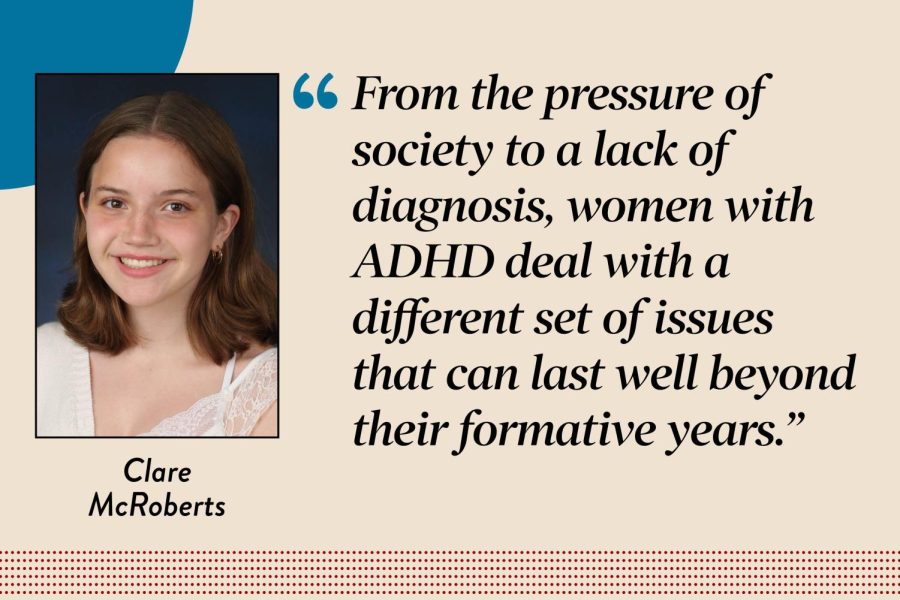Women with ADHD face different — and difficult — societal expectations
Midway Staff
Social media aside, students, teachers and administrators should be aware of difficulties and complications faced by women with ADHD inside and outside of school due to societal expectations and gender norms.
January 26, 2023
All over the internet, quizzes for self diagnosis of attention deficit hyperactivity disorder have proliferated. Billions have viewed the “ADHD” hashtag on TikTok. Young women have recognized themselves in a list of qualities — struggling to focus, tending to daydream, viewed as talking a lot — identified as symptoms of attention-deficit/hyperactivity disorder.
Lately, social media has drawn a lot of attention to the possibility of missed diagnoses for ADHD among women, especially among those who are young. All of the new attention has raised reasonable skepticism. But the problem of underdiagnosed women is real and deserves a deeper look.
Social media aside, students, teachers and administrators should be aware of difficulties and complications faced by women with ADHD inside and outside of school due to societal expectations and gender norms.
One might believe that exploring and recognizing ADHD in women should not be the highest priority since men are most commonly diagnosed. The Centers for Disease Control and Prevention report that 13% of boys are diagnosed with ADHD compared to only 6% of girls.
Yet, those very statistics bring reason for concern. Researchers have found evidence that suggests that parents and teachers are far less likely to seek services for girls than boys.
ADHD is deeply complicated in how it affects women. Women are often missed when it comes to medical referrals and diagnoses, studies suggest, because women with ADHD may show a different set of symptoms: inattention and anxiety rather than hyperactivity, which is more widely recognized as a symptom of ADHD.
Yet, simultaneously, women with ADHD — diagnosed or not — may exhibit symptoms that do not align with social constructs for women in particular. Often, women are expected to be focused, organized and reserved, taking up as little space as possible. Too loud, too chatty, too messy — none of it quite fits what the world expects.
What makes this issue so urgent is an increased risk of harm among women with ADHD. Mental health experts have found that young women who exhibited a history of ADHD had higher rates of self-harm and suicide than a group with no such history.
From the pressure of society to a lack of diagnosis, women with ADHD deal with a different set of issues that can last well beyond their formative years. Acceptance, recognition and understanding from peers, teachers and adults is essential to beginning to change a destructive pattern for women with ADHD.






























































Debbie • Jan 31, 2023 at 5:01 am
This is a very important issue. Thank you for writing this and drawing attention to the challenges.